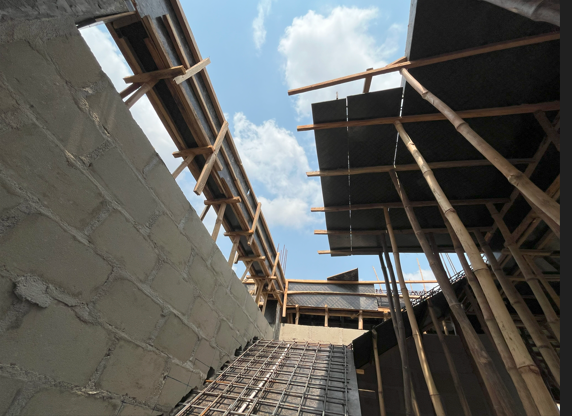Imagine building a modern community hub, a luxury estate, or a thriving commercial space that stands the test of time, generating lasting wealth. Now, picture the pitfalls along the way, avoidable errors that can turn your dream into a nightmare: delays, overspending, legal issues, or even a failed project.
Whether you’re a fresh face in the real estate game or a seasoned developer aiming to sharpen your edge, knowing what traps to steer clear of is crucial. At Casafina, we believe in crafting spaces that do more than just fill land but create legacies, inspire communities, and redefine excellence. That’s why we’ve compiled the top 10 mistakes to avoid in real estate development. These mistakes include;
Insufficient Due Diligence in Real Estate Development
Skipping thorough due diligence on land, zoning, environmental restrictions, and market analysis can lead to project delays or legal issues. Every successful development starts with solid groundwork. Conduct comprehensive site analysis, land titles, environmental impact assessments, and community plans. A thorough due diligence process ensures that your project aligns with regulatory standards and local needs, thereby avoiding potential surprises down the line. Also, as an investor, always perform a comprehensive site analysis before purchasing property.

Real estate projects are complex financial endeavors. Underestimating costs or overlooking contingency funds can rapidly exhaust your resources, which leads us to our next point.
Poor Financial Planning and Budgeting
Underestimating costs such as construction, permits, and contingency funds can drain your project budget. It is better and safer to develop realistic financial plans with detailed budgets, cash flow forecasts, and contingency reserves to avoid surprises because in this world, Murphy’s law persists.
Ignoring Local Zoning Laws and Permits
Failing to secure the necessary building permits or misunderstanding zoning requirements can delay development. Every city in Nigeria has zoning laws, building codes, and permit requirements rooted in community safety and order. Non-compliance can halt your project unexpectedly, sometimes even leading to legal action or demolition. Create a strong relationship with local authorities, engage zoning experts, and ensure every permit is secured before breaking ground. Also, work closely with local authorities and zoning experts for compliance and obligations.
Overestimating Market Demand and Rental Income
Market research isn’t just a box to tick; it’s the foundation of your development strategy. Developing based on overly optimistic market forecasts can lead to low occupancy or sales. It is advisable to conduct thorough market research to validate demand and ensure your project aligns with current market needs. This will ensure high occupancy and sustainable cash flow.
Poor Site Selection and Location Choice
This can’t be overemphasized enough: choosing a site without considering infrastructure, accessibility, or future developments can hurt your property’s value. Location is the heartbeat of real estate. Focusing on strategic location analysis can maximize return on investment. For example, if the property is commercial, you should consider developing it in a commercial zone or trade space. Just like Ile Aje, a trade hub and modern plaza at Ojota.
Ineffective Design and Development Planning
Poor architectural design or inadequate planning can result in costly redesigns and delays. These days, investors look for the aesthetics first, before finding out more on the property. To make profits, you need to engage experienced architects and planners to create efficient and attractive development plans and structures following market trends and innovations.
Construction Delays and Cost Overruns
Construction risks like labor shortages and supply chain issues can cause project delays. Building a realistic timeline and including buffers to mitigate construction risks is the best decision you can make when developing. Clear communication and contingency planning will also go a long way toward ensuring your project stays on track and within budget.
Costly Change Orders During Construction
New ideas, better ones, could surface during development. It affects the project when unplanned changes are made during construction, which can inflate costs and cause delays. It is advisable to establish clear project scopes and approvals before starting construction. Encourage innovative ideas early on, but implement structured change management processes to keep your project aligned with budget and schedule.
Lack of Experienced Project Management
Poor oversight often leads to missed deadlines, budget overruns, and subpar quality. Without seasoned oversight, projects often face delays. Poor scheduling or inadequate coordination can cause work to pile up, extend the project timeline, and inflate costs, ultimately postponing your ability to generate revenue or occupy the space. Hiring professional project managers to oversee construction and ensure smooth project execution will help with development.
Short-Term Focus Instead of Long-Term Strategy
Focusing solely on immediate profits without considering future maintenance, market shifts, or sustainability can undermine your investment. To achieve proper delivery, develop a long-term strategy for ongoing profitability.
In conclusion, here are final tips for successful real estate development
Collaborate with industry professionals like architects, real estate agents, and legal advisors.
Stay updated on local zoning laws, building regulations, and market trends.
Conduct thorough feasibility studies before breaking ground.
Avoiding these common mistakes in real estate development will help you maximize your investment, reduce risks, ensure lasting success, and achieve sustainable growth. Ready to start your next project? Planning with foresight is key to long-term success.
